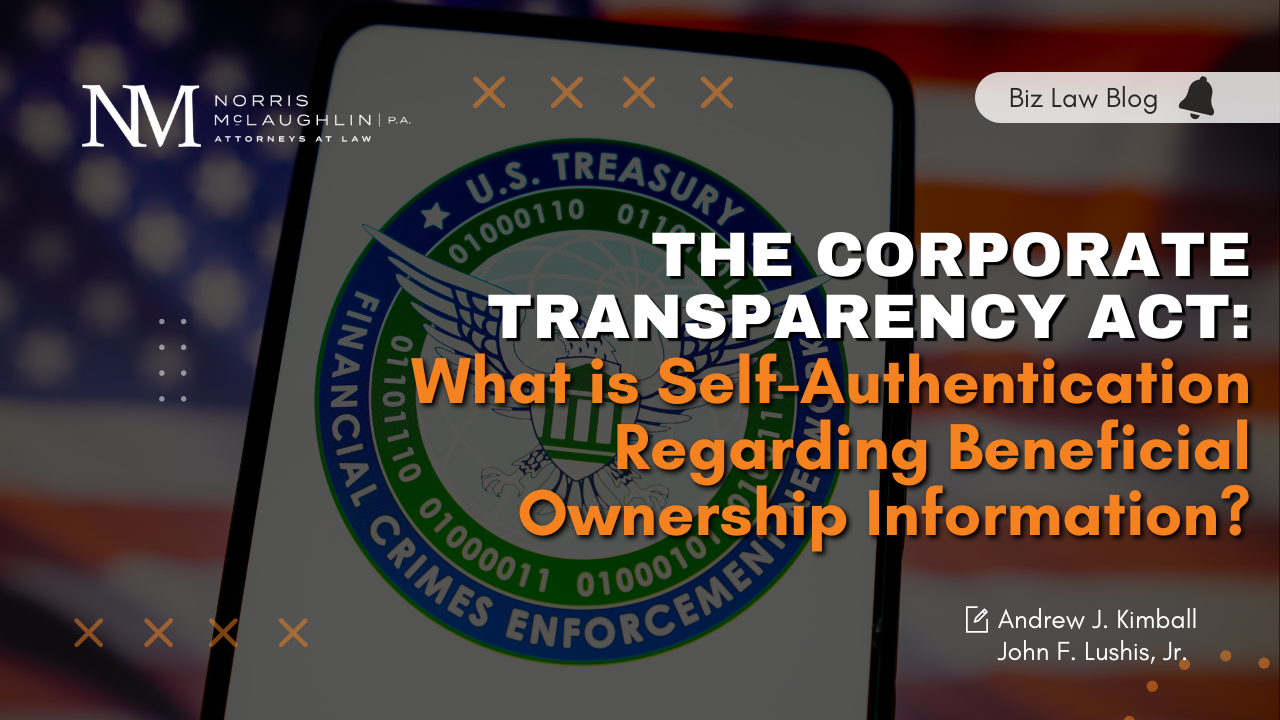Why “ASK MARCUM”: SEC and PCAOB Sanction Accounting Firm for Deficient Work

Marcum LLP, a New York limited liability partnership headquartered in New York City, has grown since its founding in 1951 to become a national, and indeed international, accounting firm with over 370 partners and 2,300 employees in offices in 30 cities across the U.S. Through an affiliate, it also has offices in China and in Singapore.
Since 2020, Marcum has been conducting a nationwide television campaign in which puzzled executives are advised to “Ask Marcum” for a solution to complex problems. While the advertising emphasizes Marcum’s supposed encyclopedic knowledge, it may also subliminally suggest a willingness to explore unusual market opportunities to fuel its growth. One of those “opportunities” was the sudden popularity of “blind pools” or Special Purpose Acquisition Companies (“SPACs”) during the COVID-19 pandemic. These entities had been around for years but were seldom used.
What are “Blind Pools” or SPACs?
Indeed, the state securities laws of many U.S. jurisdictions made it more than difficult to sell shares in “blind pools,” as they were seen as dubious and risky ways to raise capital. A sponsor would organize an investment entity and sell shares in the entity to the public. The resulting capitalized entity would seek some acquisition opportunity and hope that the investors in the entity would end up as the shareholders of a successful publicly owned business. Note that the sponsors did not (and could not) disclose what the acquisition might be or provide any relevant financial information to allow assessment of the risks and possible rewards of that investment, as that information was unknown at the time the money was raised – hence, the term “blind pool.”
In the market turmoil triggered by the COVID-19 pandemic and faced with the governmental shutdown of many normal business activities, SPACs became the thing to do. Some numbers paint the story:
- 2016: $3.5 billion raised;
- 2019: $13.6 billion raised in 59 SPACs;
- 2020: $83.4 billion raise in 247 SPACs; and
- 2021: $162.5 billion raised in 613 SPACs.
Then in the spring of 2021, the U.S. Securities and Exchange Commission (“SEC”) adopted new disclosure regulations and the Internal Revenue Service raised serious questions about the capital versus ordinary income treatment of options that provided “special compensation” to SPAC sponsors. Those developments, coupled with the winding down of COVID-19 and the extremely poor performance of a majority of the SPAC investments, brought an end to the SPAC boom. There are, however, some well-known SPAC successes, including: DraftKings; Virgin Galactic; and a real estate company, Opendoor Technologies. It might also be noted that one of the reasons for the attraction of doing a SPAC is the relative speed with which the capital-raising part of the deal can be accomplished – something not generally possible in underwritten public offerings. Once again, the marketplace is suggesting that the SEC regulatory regime is too costly and too slow.
SPACs and Marcum
So how did all this affect Marcum? As stated by the Director of Enforcement of the SEC in the Commission’s June 21, 2023 Press Release concerning the Order (as follows):
“Marcum neglected its essential gatekeeper function in service to its own growth. Marcum took on more than 600 new SPAC clients for nearly a six-fold increase in just one year, churning out audits at an unsustainable pace causing widespread quality control and audit standard violations that put its clients and the investing public at risk. Throughout the SPAC boom of the last several years, Marcum prioritized increased revenue over audit quality: its aggressive pursuit of business growth far outpaced any commensurate development of an already weak system of quality controls. … From 2020 through 2021, the market saw more than 860 SPACs complete IPOs and Marcum audited nearly half of them, without adequate consideration for its ability to serve as gatekeepers.”
This Press Release echoes the guidance given by Paul Munter, the SEC’s Acting Chief Accountant, in a Statement issued on August 29, 2022, and discussed in my Oct. 3, 2022 Blog “Independence Days,” where I note that the Statement “implicitly expresses concern that accounting, driven by ever-increasing opportunities for greater earnings, will sell its soul as a profession.”
A June 21, 2023 SEC Order Instituting Public Administrative and Cease-And-Desist Proceedings (the ”Order”) against Marcum notes that in 2019, Marcum had served as the auditor for only 185 publicly registered issuers. But by 2022, Marcum had become the auditor for 575 issuers, over three times the 2019 total. As a result, Marcum “vaulted … to the fifth largest public company auditing firm, as measured by number of clients.” As an accounting firm auditing public companies, Marcum was obligated to be registered with, and to comply with the professional standards set by, the Public Company Accounting Oversight Board (“PCAOB”), a subordinate affiliate of the SEC created by the Sarbanes-Oxley Legislation of 2002 in the aftermath of Enron and the collapse of Arthur Andersen & Co.
Exactly what did Marcum do or fail to do, and what were the consequences?
First, the concerns about Marcum did not originally stem from the unanticipated “boom” in SPACs; that “boom” simply exacerbated Marcum’s shortcomings. As noted in the Order, PCAOB’s annual inspections of Marcum before 2020 “revealed an increasing number of deficiencies.” The PCAOB felt it necessary to issue enforcement orders in 2019 and 2020 for quality control failures concerning auditor independence and the process of accepting new clients. Marcum’s own self-inspections from 2018 onward showed repeated deficiencies, including missing documentation (for example, in 2018, 8 out of 13 public company audits did not have all the audit work papers). Marcum concluded that these deficiencies were caused by “engagement partners, managers, and… [reviewers] not spending enough time on the engagements.” Nonetheless, the Order notes, “Marcum failed to take sufficient remediative action.”
As a result of Sarbanes-Oxley and the creation of the PCAOB, the profession of accounting, to the extent it involved auditing public companies, was “federalized” with the adoption of national standards of professionalism set by the PCAOB. One of those is a quality control standard that required the adoption of quality control policies and procedures, and the continuing monitoring of personnel both to ensure compliance with those policies and procedures and to evaluate the quality of the accounting firm personnel involved. Marcum required that a new client must first be assessed by the firm’s Client Acceptance Committee, including an assessment of the capacity of Marcum’s personnel to provide professional services to a new client. The Order notes that instead, “[e]ngagement partners submitted SPAC clients for acceptance on the assumption that capacity and staffing could be managed at a later date.” Through 2021, “Marcum continued to assume that it could manage based upon some combination of triaging, staffing and deadlines.” So, Marcum tried to deal with the consequences of having 113 SPAC clients in September 2020 to 882 SPAC clients in June 2021. The Order spells out several of the delays and disruptions flowing from this, concluding that “Marcum could not have reasonably expected to complete all accepted SPAC engagements in accordance with professional standards.”
The Order notes that Marcum did not follow its own procedure for evaluating and accepting new audit clients (including background reports and interviews) when it came to accepting new SPAC clients, nor did it have sufficient monitoring of compliance with its own procedures. This fact was brought home by a July 2021 “one-time” check that found a “substantial portion” of the SPAC client files did not contain the required background reports.
Similarly, and echoing history from 2018, Marcum lacked the required policy and procedures for documenting audit work, reviewer signoffs, and compliance monitoring. Indeed, a sample review of SPAC documentation by SEC Staff from its Division of Enforcement found over 25% of the engagement partner signoffs were either signed after release of the audit report or entirely missing. Marcum had, in violation of SEC rules, an auto-delete feature on its e-mails so that they were not available for examination subsequently. As one might suspect, the PCAOB and the SEC found that engagement quality reviews were done either haphazardly or not at all, thus “gutting” those reviews of their intended purpose.
The Order asserts that Marcum had inadequate policies, procedures, and monitoring to provide required professional documentation of SPAC warrants, relying in many cases on documentation and analysis created and provided by the audit clients themselves rather than by Marcum. Of 38 SPAC engagements inspected, 32 had to be reopened to add “appropriate documentation” and valuations. The Order notes that Marcum relied on oral (and, hence, not preserved) rather than written documentation of communications with audit committees of clients, and thus Marcum could not (as required by PCAOB standards) show that it had communicated all “requisite matters.” This proved to be the case in 5 of 38 engagements.
Marcum was found to have failed to identify and communicate all significant risks; indeed, in 80 SPAC audits examined by the SEC staff, there were NO risk assessments. Marcum was found to have been equally “slipshod” in utilizing its own internal consultations with national staff, and in having a national consultancy staff germane to its practice. Marcum’s training of professionals and evaluation of their performances were, not surprisingly, deficient. In general, Marcum’s engagement partners fell short of their professional obligations and, along with their colleagues, were found to have failed to exercise due professional care.
All of this led both the PCAOB and the SEC to conclude that Marcum had violated Section 4C of the Securities Exchange Act of 1934, as amended, and Rule 102(e) thereunder, as well as Rule 2-02(b)(1) of Regulation S-X. Marcum did not meet professional standards necessary to practice before the Commission, and it did not document and preserve the records required for the audits of publicly-traded companies. As a result, Marcum was censured, and ordered to cease and desist from further violations of the cited law and regulations and to pay civil penalties of $10 million to the Commission and $3 million to the PCAOB. Perhaps even more “punitive,” Marcum must:
- retain a jointly approved consultant for 2 years to review and criticize all Marcum policies and procedures, with regular reports to the SEC and to the PCAOB;
- accept no more than 3 new audit clients each quarter until Marcum agrees to Adopt Recommendation of the independent consultant as to how Marcum is to conduct its business.
- inform each of its audit professionals of the Order within 10 days; and
- require each audit professional to “undergo training, as applicable, related to changes to the firm’s policies and procedures that result from the [independent consultant’s on-going reports]”.
Paul Munter’s concerns about the accounting profession are underscored in this enforcement proceeding. Once again, the road to riches has proven far more costly than imagined, and not just because of the $13 million in penalties.
If you have any questions or concerns regarding SEC policies, investment inquiries, or the legitimacy of your SPAC investment, feel free to reach out to me at pdhutcheon@norris-law.com.




